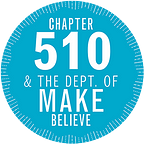Lessons From My Roots
Written by Amy Hu in conversation with her father and grandmother
From Chapter 510 publication Past is Present; Heritage Stories from Oakland Youth
September 17, a hot Sunday evening, the three of us gather peacefully around our marble table as we enjoy a dinner prepared by my grandma. Against a background of noise from the Asian drama my father watches on television and the running water my grandma turns on to rinse the dishes, they converse about the process of obtaining a green card. They explain their struggle in moving to America, while leaving the rest of their family behind because they couldn’t get green cards at that time.
My father, Zong Hou Hu, says, “We had to be 21 years old to come to America and if that wasn’t the case and I had come way before the age of 21, I would’ve become so rich because of my smart brain.” He is often sarcastic like this, but most of the time he is serious.
My grandmother, Runchange Huang, chimes in, “If we had come earlier we could’ve gotten so much money. Even I had so much money after coming here. Oooh, if your dad came earlier, he would’ve been rich, too.”
Many people speak of fleeing their country for America, to live the American dream, because of unjust events in their home countries. China has been a communist country for sixty years, beginning in 1949. This means that China advocated revolution, and wages were not equal because they varied depending on abilities and needs. The inequality of wages caused the Chinese to struggle with maintaining a healthy lifestyle on a minimum wage of about 55 cents an hour, according to an article written by David Barboza in the New York Times. The Chinese were also expected to work 16-hour days while being exposed to life-threatening conditions such as working with dangerous machinery.
My father sits up in his chair and lowers the volume of the television. I can see that the tension is starting to build. My grandma rejoins us at the dinner table after rinsing the dishes. “There isn’t anything that America has that China doesn’t. It’s just that America is more free and we won’t ever be told to overthrow anything.” I notice her voice rising as she speaks. “I’m not going to tell you what we were supposed to overthrow because it’s probably not okay to say it. Just say that it was good to come here for a better income and to reunite with family.” Now she speaks in a lower tone, “Don’t say we had to overthrow anything because they might arrest me if they find out I told you this.”
“You’re crazy, she is only doing this to understand our history,” my father says, bringing my grandmother back to my project.
I ask my father if he wants to return to China to live. He responds, “The only reason I would go back to China is if they give me an opportunity to be a rich person. But if they tell me to be a poor person again, I won’t go back.” He proceeds to list all of the occupations he’s had when he is interrupted by my grandma.
“Your dad worked in the fields, too,” she says. “He didn’t go to school so that he could help me to take care of the cows.”
“Yeah, the fields. I didn’t go to school because I couldn’t pass the tests. If I didn’t pass the tests you think I could go on to the next grade? Damn, you think it was that easy like it is nowadays for you guys?” I understand he is referring to my brother and me. “To go to school willingly and they’ll give you an education? If you don’t pass the test you can’t continue your education.” His attention returns to the television and it is clear that the interview is over.
Hearing about my father’s school failure shocks me because my dad has always modeled what it looks like to be hardworking and motivated about the things you do. He constantly preaches about getting good grades and being studious so “I wouldn’t need to be in his shoes.” But now it makes perfect sense; his failure with his education caused him to raise the stakes for his children. For most people, the idea of living the American dream may be just a dream, but in my family’s case it’s their reality. Although this conversation is mainly between my grandma and father, it slowly turns into a lecture about my life. Like every other teenager, I can get aggravated when they pull the “I made sacrifices for you” or “I didn’t raise you to do that” card. This interview teaches me why it matters to them so much.
—
“Lessons From My Roots” is from Past Is Present which documents the oral histories of 12 MetWest High School students as they learn the migration and immigration stories of their lineage. These brave youth come with burning questions and open ears, ready to record, write, and make visible the unheard stories of their families’ journeys. These pages are filled with resilience and courage, survival and hope, grief and praise.
—
Chapter 510 is a made-in-Oakland youth writing & publishing center. Our teaching artists and volunteers work side-by-side with educators to provide a safe space and supportive community for young people ages 6–18 to bravely write.
Our vision is that every young person in Oakland learns to write with confidence and joy.
